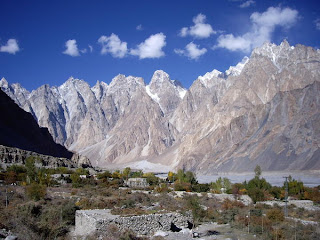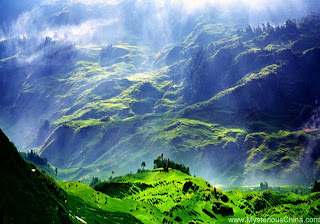Shangri-La is a city in Yunnan Province, is divided into two areas: Dukezong Ancient Town and a more modern city-like area. The two areas share Tuanjie Street as the common border.
Shangri-La official name was changed from Zhongdian in Xianggelila in 2002. In Tibetan Shangri-La means the “sun and moon in heart”, an ideal home only found in heaven. The lofty and continuous snowy mountains, endless grasslands, steep and grand gorges, azure lakes and the pastoral villages in this area always leave a deep impression on visitors.
In modern China, the Zhongdian county was renamed to 香格里拉 (Xiānggélǐlā, Shangri-La in Chinese) in 2001, to attract tourists. The legendary Kun Lun Mountains in Tibet offer other possible Shangri-La valleys.

A popularly believed inspiration for Shangri-La is the Hunza Valley in northern Pakistan, close to the Tibetan border, which Hilton visited a few years before Lost Horizon was published

Shangri-la or Zhongdian is a sacred scenic region blessed with majestic mountains.

Situated in Shangri-La, Yunnan Province of China, Songtsam Hotel sits at the foot of Songtsam Lama temple, one of the largest Lama temple outside of Tibet. Refurbished from a traditional Tibetan residence, the boutique hotel has 22 rooms and suites that combine Tibetan ethnic style with modern comforts.

The enchanting Shangri-la’s Lake Napahai is studded among the stately mountains, sparkling like an invaluable emerald.








0 comments:
Post a Comment